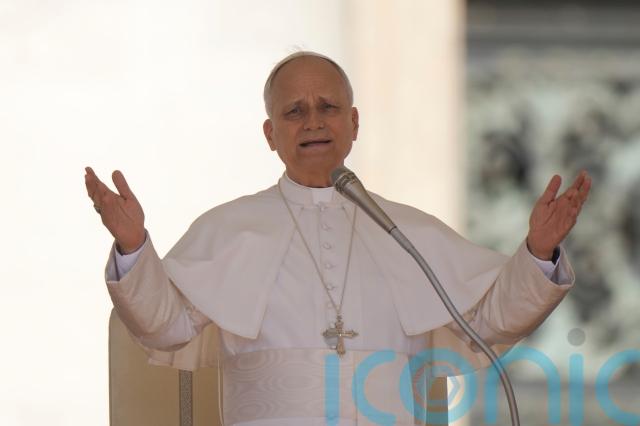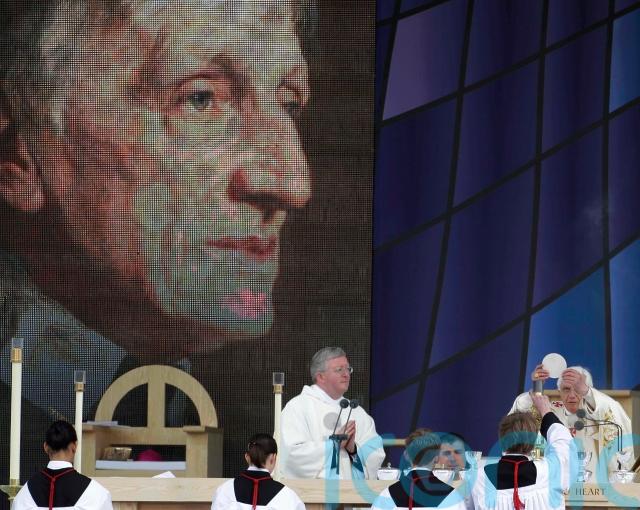
Pope Leo XIV has decided to declare St John Henry Newman a “doctor” of the Church, bestowing one of the Catholic Church’s highest honours on the deeply influential 19th century Anglican convert who remains a unifying figure in both the Anglican and Catholic churches.
The Vatican said Leo confirmed the opinion of the Vatican’s saint-making office during an audience on Thursday with its prefect, Cardinal Marcello Semeraro, and would make the decision official soon.
The designation is one of the most significant decisions of Leo’s young papacy and also carries deep personal meaning: Newman was strongly influenced by St Augustine of Hippo, the inspiration of Leo’s Augustinian religious order, and Leo’s namesake, Pope Leo XIII, made Newman a Catholic cardinal in 1879 after his conversion.

Newman, a theologian and poet, is admired by Catholics and Anglicans alike because he followed his conscience at great personal cost.
When he defected from the Church of England to the Catholic Church in 1845, he lost friends, work and even family ties, believing the truth he was searching for could only be found in the Catholic faith.
The title of doctor is reserved for people whose writings have greatly served the universal Church.
Only three-dozen people have been given the title over the course of the Church’s 2,000-year history, including the 5th century St Augustine, St Francis de Sales and St Teresa of Avila.
“This recognition that the writings of St John Henry Newman are a true expression of the faith of the church is of huge encouragement to all who appreciate not only his great learning but also his heroic sanctity in following the call of God in his journey of faith, which he described as ‘heart speaking unto heart’,” said Cardinal Vincent Nichols, the Archbishop of Westminster who helped spearhead the campaign.
Newman experts said the decision to add the British theologian to their ranks was deeply significant, given Newman’s contribution to Christian understanding of conscience, truth and education – and his near-universal appeal to progressives and conservatives alike.
Jack Valero, who served as a spokesman for Newman’s 2010 beatification and 2019 canonisation ceremonies, said he had never come across anyone who had a problem with him.
If back then Newman was the perfect unifying figure for a polarised Church, he is even more so now, for a new pope who has made unity a core priority of his pontificate, Mr Valero said.
“You know, I look at Pope Leo and I hear him say, ‘We need unity, we need peace,’ and so on and I think, ‘Here’s the man who’s going to make it happen’,” he said in an interview.
The first American pope vowed during his May 18 installation Mass that he would work for unity so that the Church could become a force for peace in a troubled world.
It was a message of pacification after the sometimes turbulent pontificate of Pope Francis exacerbated divisions in the Church.
Leo has also repeatedly affirmed his identity as an Augustinian, deeply inspired by the teachings of the 5th century theologian.
Many scholars have long considered Newman to be the Augustine of the modern era.
Anglicans split from Rome in 1534 when English King Henry VIII was refused a marriage annulment.
In the centuries that followed, Catholics were fined, discriminated against and killed for their faith.

Newman was one of the founders of the so-called Oxford Movement of the 1830s, which sought to revive certain Roman Catholic doctrines in the Church of England by looking back to the traditions of the earliest Christian church.
But he gave up a brilliant academic career at Oxford University and the pulpit of the university church to convert to Catholicism.
As a Catholic, he became one of the most influential theologians of the era, bringing elements of the Anglican church into his new faith tradition.
He died in Britain in 1890.
Newman’s path to being declared a doctor in the Catholic Church has been exceptionally quick.
Pope Benedict XVI beatified him during a visit to Britain in 2010 and Pope Francis made him a saint in 2019, with the then-Prince of Wales, now King, in attendance.
Francis declared two doctors of the Church during his 12-year pontificate – St Irenaeus and St Gregory of Narek – and was on the receiving end of a concerted push by English-speaking bishops to add Newman to their ranks.
Subscribe or register today to discover more from DonegalLive.ie
Buy the e-paper of the Donegal Democrat, Donegal People's Press, Donegal Post and Inish Times here for instant access to Donegal's premier news titles.
Keep up with the latest news from Donegal with our daily newsletter featuring the most important stories of the day delivered to your inbox every evening at 5pm.